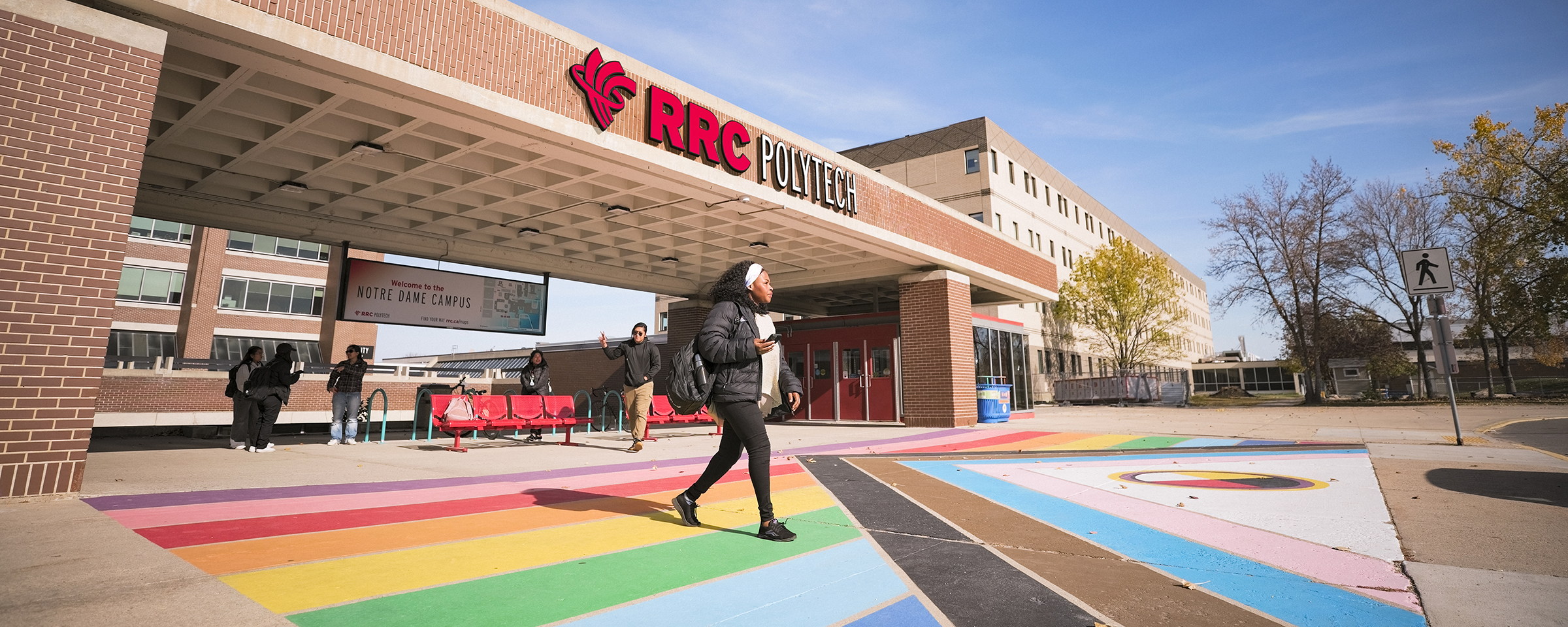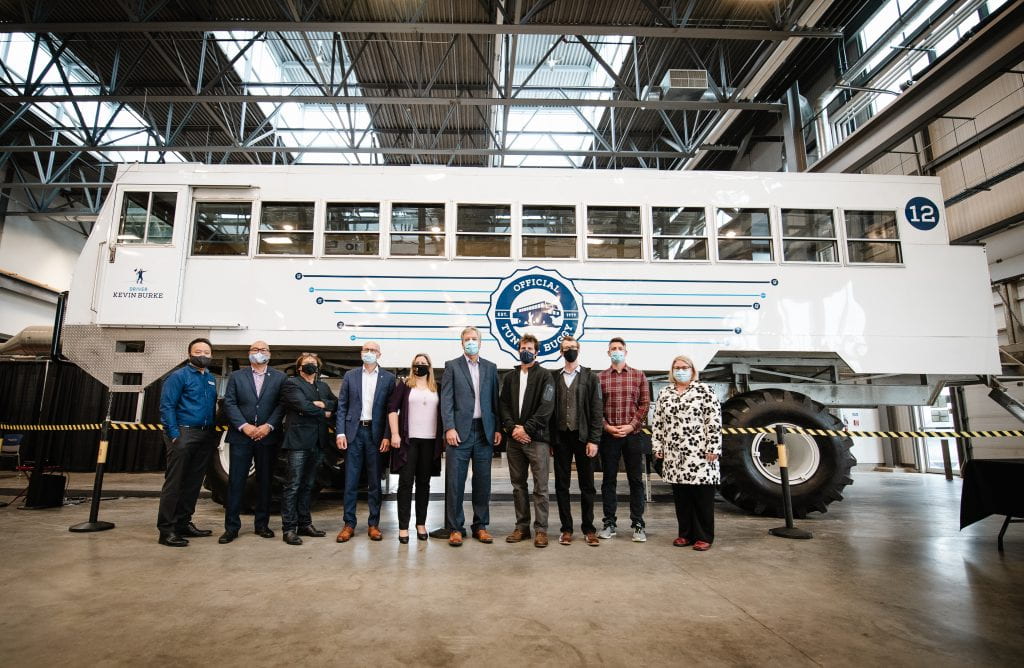Going electric in the sub-Arctic: RRC and Frontiers North unveil EV Tundra Buggy
Today, Frontiers North Adventures and Red River College unveiled a new zero-emission vehicle technology initiative. The Electric Vehicle Tundra Buggy® is a collaborative, proof-of-concept project that oversaw the conversion of a Tundra Buggy in Frontiers North’s touring fleet from diesel-powered to battery electric.
The EV Tundra Buggy was made possible through the province’s new Conservation and Climate Fund, and the Vehicle Technology Centre (VTCI) — a non-profit organization dedicated to supporting Manitoba’s heavy vehicle manufacturing sector — and through in-kind support and technical services from RRC’s Vehicle Technology & Energy Centre (VTEC).
“The Manitoba government is committed to supporting environmental projects like the EV Tundra Buggy that beautifully blends our commitment to environmental sustainability, green energy and the entrepreneurial spirit of our province,” says Conservation and Climate Minister Sarah Guillemard.
“We remain committed to making Manitoba the cleanest, greenest, most climate-resilient province in the country, and projects like this can help make that happen.”
The project’s goal of reducing environmental impact and protecting Manitoba’s sub-Arctic landscape will help to create a culture of sustainable tourism in Churchill, one of the province’s top year-round destinations.
“Our company’s purpose is all about stewardship, and positively contributing to our communities and environments,” says John Gunter, President and CEO of Frontiers North.
“By starting the conversion of our fleet with this first EV Tundra Buggy, Frontiers North is taking meaningful steps towards reducing our GHG emissions and creating new clean tech jobs. We are also excited to provide our touring guests a silent EV Tundra Buggy experience amongst wild polar bears and beneath the northern lights. For their support of this project we thank Manitoba, Vehicle Technology Centre Inc. and Red River College.”
The EV Tundra Buggy project builds upon research, testing and demonstration VTEC has undertaken for the shift of transit buses to electric. The battery used in the buggy is repurposed from an e-bus. By tapping into VTEC’s in-house technical expertise and using a repurposed e-bus battery, Frontiers North was able to confirm their vision of shifting from diesel to electric was feasible.
“The EV Tundra Buggy project is a quintessential made-in-Manitoba story — it has links to conservation, tourism and environmental stewardship, highlighting the ability of industry partnerships to create positive impact in Manitoba, for Manitobans, through reducing environmental impact and benefitting our local economy,” says RRC President Fred Meier.
“The opportunity to assist Frontiers North and project partners with testing, and validating the Tundra Buggy conversion to battery electric, meant leveraging the expertise of our VTEC researchers, engineers and technicians. While working on an applied research project, it’s as much as an opportunity for us to help provide knowledge and training to our industry partners, as it is an opportunity for our researchers and students to learn and grow our in-house capabilities to further support innovation in Manitoba.”
Frontiers North, one of Canada’s top three sustainable tourism operators, plans to move forward with their vision of shifting their Tundra Buggy fleet to electric vehicles, furthering their commitment to sustainability within the province.
In addition to the primary goal of reducing environmental impact, another key objective of the conversion to electric, is to reduce sound pollution. While polar bears are easily habituated to the presence and sounds of the diesel-powered buggies, they generate sound that can carry far distances over the otherwise quiet tundra.
Photo credit: Abby Matheson, Frontiers North Adventures

